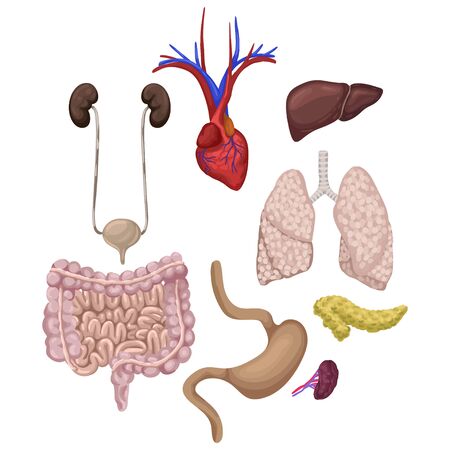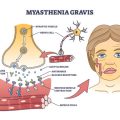Understanding Sleep Apnoea in the UK
Sleep apnoea, a condition where breathing repeatedly stops and starts during sleep, is quietly becoming a significant health concern across Britain. While it may have once been dismissed as simply loud snoring or restless nights, awareness has grown about its serious implications on daily life and long-term wellbeing. Recent studies suggest that sleep apnoea now affects millions of adults in the UK, with many cases still undiagnosed. The most common form, obstructive sleep apnoea (OSA), disrupts the natural rhythm of rest, leading to chronic tiredness, poor concentration, and increased risk of heart disease and stroke. The rise in obesity rates and an ageing population are fuelling a steady increase in diagnoses throughout England, Scotland, Wales, and Northern Ireland. As understanding deepens, it becomes ever more important for individuals and healthcare professionals to recognise the signs early. With its growing prevalence, sleep apnoea is no longer a niche issue but a public health matter impacting families and communities up and down the country.
2. Recognising the Symptoms and Seeking a Diagnosis
Sleep apnoea can often go unnoticed, especially in the UK where many people attribute tiredness or poor sleep to daily stresses or busy lifestyles. However, recognising the signs early is crucial for improving your wellbeing and preventing long-term health issues. Below is a summary of typical symptoms that may signal sleep apnoea:
| Common Symptom | Description |
|---|---|
| Loud snoring | Often noticed by partners, frequent and disruptive |
| Daytime fatigue | Feeling unusually tired, even after a full night’s rest |
| Morning headaches | Waking up with headaches due to interrupted breathing |
| Mood changes | Irritability, depression, or difficulty concentrating |
| Gasping or choking at night | Sudden awakenings with shortness of breath |
Why Are These Signs Overlooked in the UK?
Many Brits tend to downplay these symptoms, attributing them to hectic work schedules, stress, or simply getting older. There’s also a general reluctance to “make a fuss” about sleep problems, which leads to underreporting. Additionally, because sleep apnoea symptoms can be gradual and subtle, people may not realise their impact until they begin affecting daily life or relationships.
Navigating the NHS and Private Healthcare Pathways
If you suspect you might have sleep apnoea, it’s important to seek a professional diagnosis. Here are your options in the UK:
| Pathway | Steps Involved |
|---|---|
| NHS Route |
|
| Private Route |
|
Takeaway for Better Sleep Health
If you’re experiencing persistent tiredness or other typical symptoms, don’t brush it off. Early recognition and diagnosis—whether through the NHS or privately—can make all the difference in restoring restful nights and balanced days.

3. Treatment Options: From Lifestyle Changes to Medical Interventions
When it comes to tackling sleep apnoea in the UK, there is no one-size-fits-all solution. Treatment approaches range from simple lifestyle modifications to advanced medical interventions, each tailored to individual needs and circumstances. Exploring what works best for you is essential for achieving long-term wellbeing.
CPAP Therapy: The Gold Standard in the UK
Continuous Positive Airway Pressure (CPAP) therapy remains the most widely prescribed treatment for moderate to severe sleep apnoea across Britain. This device delivers a steady stream of air through a mask worn during sleep, preventing airway collapse and improving sleep quality. The NHS offers support for CPAP users, including advice on fitting and maintaining equipment, ensuring that patients receive ongoing care close to home.
Dental Devices: A Practical Alternative
For those with mild or moderate symptoms, dental devices—often known as mandibular advancement devices—are a popular alternative. Custom-fitted by specialist dentists, these mouthpieces gently reposition the jaw to keep airways open at night. Many find them easier to adapt to than CPAP machines, especially if they prefer a less intrusive option or travel frequently within the UK or abroad.
Lifestyle Adjustments for Everyday Wellbeing
Small changes can make a significant difference in managing sleep apnoea symptoms. Weight management is key; even modest weight loss can reduce severity. Cutting back on alcohol, particularly in the evenings, and giving up smoking are also recommended by British healthcare professionals. Establishing a consistent bedtime routine—perhaps winding down with a book or gentle stretching—can promote restorative sleep and complement other treatments.
The Importance of Ongoing Support
Accessing local support groups or online forums specific to the UK can provide encouragement and practical advice from others who understand the challenges of living with sleep apnoea. Regular check-ups with your GP or specialist ensure your treatment remains effective and adjustments are made when necessary.
A Holistic Approach
Treating sleep apnoea effectively often means blending medical solutions with sustainable lifestyle changes. Whether through NHS-provided therapies or daily habits rooted in self-care, finding what works for you is central to enjoying better health and balance amid life’s demands in the UK.
4. The Role of the NHS and Community Support
When it comes to sleep apnoea in the UK, the NHS plays a pivotal role in both diagnosis and long-term management. British residents rely on their local GP as the first port of call, where early symptoms—such as loud snoring, morning headaches, and daytime fatigue—can be discussed confidentially. If sleep apnoea is suspected, GPs commonly refer patients to specialist sleep clinics for further investigation, which may include overnight sleep studies (polysomnography) or at-home testing kits.
NHS Pathway for Sleep Apnoea Patients
| Step | Description |
|---|---|
| Initial GP Consultation | Discuss symptoms and medical history; rule out other causes. |
| Referral to Sleep Clinic | Specialist assessment and diagnostic testing arranged. |
| Diagnosis & Education | Results shared with patient; education about condition provided. |
| Treatment Initiation | CPAP therapy, lifestyle advice, or alternative treatments prescribed. |
| Ongoing Monitoring | Regular follow-up appointments to monitor progress and adjust treatment if needed. |
The Value of Local Support Groups and Charities
Beyond the NHS, community resources are vital for those living with sleep apnoea. Local support groups offer a space to share experiences, swap practical tips, and learn how others manage daily challenges such as CPAP machine usage or coping with tiredness at work. Charities like the British Lung Foundation and Hope2Sleep provide helplines, online forums, peer mentoring, and educational workshops. These organisations also campaign for better awareness across the country—helping dispel myths around sleep disorders and encouraging more people to seek help.
Awareness Initiatives Across the UK
- Sleep Awareness Week: Annual campaigns highlighting the signs of sleep apnoea.
- Public Health England Materials: Leaflets distributed in surgeries and pharmacies.
- Employer Outreach: Workshops educating staff about healthy sleep habits and workplace adjustments.
- Patient Stories: Real-life accounts shared through podcasts or local radio to reduce stigma.
A Holistic Approach to Wellbeing
Tackling sleep apnoea is not just about medical intervention—it’s also about creating supportive networks so individuals feel empowered to manage their health. By combining NHS expertise with grassroots support and national awareness drives, the UK is taking steady steps towards better sleep health for all.
5. Prevention and Public Health Awareness
Simple Steps for Everyday Life
Preventing sleep apnoea starts with small, sustainable changes that fit naturally into British daily routines. Maintaining a healthy weight is key; regular brisk walks in the local park or cycling instead of driving can make a real difference. Opting for a balanced diet—think more veg, less processed food—will also help reduce risk factors. Limiting alcohol, especially before bedtime, and cutting back on smoking are two classic but effective prevention methods.
Creating Sleep-Friendly Environments
Good sleep hygiene is essential. Try to keep bedrooms quiet, dark, and cool—simple blackout curtains or an eye mask can work wonders during those early summer sunrises. Sticking to a consistent bedtime, even on weekends, helps regulate your body clock. Avoid screens and heavy meals late at night for better rest.
Community-Driven Awareness
Raising public awareness about sleep apnoea in the UK starts at the grassroots level. Local community centres can host talks or distribute leaflets about symptoms and risk factors. Sharing personal experiences within support groups or online forums can encourage others to seek help. Schools and workplaces could include sleep health education as part of wellbeing initiatives.
The Role of Local Healthcare Providers
NHS clinics and GPs play a crucial role by offering information during routine check-ups and referring those at risk for proper assessment. Pharmacists can display posters highlighting warning signs, making it easier for people to recognise symptoms early.
Supporting Each Other
Finally, talking openly about sleep issues reduces stigma. Checking in with friends, family, or colleagues who seem tired or irritable may prompt them to seek advice. Together, these everyday actions help build healthier communities across the UK, making sleep apnoea prevention everyone’s business.
6. Living Well with Sleep Apnoea: Stories and Strategies
Everyday Life: Adapting to a New Normal
Living with sleep apnoea can seem daunting at first, but many in the UK have found ways to thrive while managing this condition. For some, it’s meant embracing a new daily rhythm, finding balance between work commitments, family life, and the essential routines that keep their symptoms in check. People like Sarah from Manchester share that using her CPAP machine regularly has not only improved her sleep quality but also helped her rediscover energy for morning walks in the local park. Her story is echoed by many who’ve learned to weave treatment into their everyday lives without sacrificing personal goals or social activities.
Work-Life Balance: Small Adjustments, Big Impact
For those balancing busy jobs, sleep apnoea management becomes part of their self-care toolkit. John, a teacher in Bristol, credits his improved daytime alertness to maintaining a strict bedtime routine—even on weekends. He’s found support through open conversations with colleagues and requesting flexible start times when needed. These small workplace adjustments make a world of difference, ensuring he remains present both at work and at home. It’s increasingly common for British employers to accommodate such requests as awareness around sleep health grows.
Self-Care Tips from Real People
- Stay consistent: Prioritise going to bed and waking up at the same time each day.
- Embrace your device: Whether it’s a CPAP machine or another prescribed aid, regular use is key—many say it becomes second nature over time.
- Create a restful space: A clutter-free bedroom, blackout curtains, and comfortable bedding can help maximise sleep quality.
- Seek community: Support groups—online or local—offer advice and camaraderie from others who understand the challenges firsthand.
The Power of Positive Routine
The most successful stories are often those where individuals take charge of their routines and communicate openly with both healthcare providers and loved ones. By integrating treatment into daily habits and making room for rest and relaxation, people across the UK are finding that sleep apnoea doesn’t have to limit their enjoyment of life. Instead, it becomes an opportunity to prioritise wellbeing—proving that with the right strategies, living well with sleep apnoea is entirely possible.


